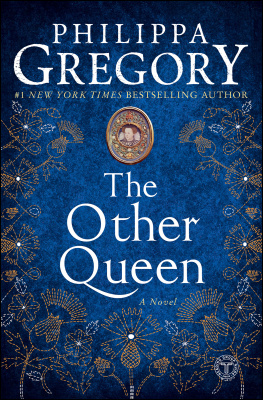Philippa Tomczak presents a detailed and nuanced account of the roles and effect of the charitable sector in prisons in England and Wales. In so doing, she develops a fresh approach to penal power that should reorient the field of study.
Mary Bosworth, Professor of Criminology and Assistant Director of the Centre for Criminology, University of Oxford, UK
This book challenges some of the orthodox claims that the voluntary sector has been captured by either states or markets. Using actor-network analysis, it argues that the responses of voluntary sector to decades of neo-liberalism and penal punitiveness are nuanced, fluid and complex. Philippa Tomczak makes a compelling, critical intervention in a rapidly evolving and exciting field of study. It is high on my reading list.
Mary Corcoran, Senior Lecturer in Criminology, Keele University, UK , and editor of The Voluntary Sector and Criminal Justice (Palgrave Macmillan, 2016)
In the past few decades we have seen the emergence of an increasingly complex, hybrid and privatized landscape of penal service delivery, with more and more elements of the voluntary sector being drawn into the new neoliberal marketised penal economy too. This book is a very valuable addition to the literature on the changing relationship between the voluntary sector and the state, raising important questions about the relationship, which organisations are involved, how it works, what effects there are on consumers, and what complexities and concerns there are in new relationship. The book is both insightful and timely and will be of interest to students and scholars of criminal justice, policy-makers and practitioners across the field.
Loraine Gelsthorpe, Professor of Criminology and Criminal Justice, Deputy Director, Institute of Criminology, University of Cambridge, UK
Tomczaks sophisticated, empirical exploration of the voluntary sectors involvement in that most involuntary of sectors, the UKs penal system, simply could not be more timely or more badly needed. It fills an enormous gap in the criminological literature while opening up dozens of new avenues for new research. A real path-breaker.
Shadd Maruna, Professor of Criminology, University of Manchester, UK
The Penal Voluntary Sector
The penal voluntary sector and the relationships between punishment and charity are more topical than ever before in countries around the world. In recent years in England and Wales, the sector has featured significantly in both policy rhetoric and academic commentary. Penal voluntary organisations are increasingly delivering prison and probation services under contract, and this role is set to expand. However, the diverse voluntary organisations which comprise the sector, their varied relationships with statutory agencies and the effects of such work remain very poorly understood.
This book provides a wide- ranging and rigorous examination of this policy- relevant but complex and little studied area. It explores what voluntary organisations are doing with prisoners and probationers, how they manage to undertake their work, and the effects of charitable work with prisoners and probationers. The author uses original empirical research and an innovative application of actor- network theory to enable a step change in our understanding of this increasingly significant sector, and develops the policy-centric accounts produced in the last decade to illustrate how voluntary organisations can mediate the experiences of imprisonment and probation at the micro and macro levels.
Demonstrating how the legacy of philanthropic work and neoliberal policy reforms over the past thirty years have created a complex three-tier penal voluntary sector of diverse organisations, this cutting-edge interdisciplinary text will be of interest to criminologists, sociologists of work and industry, and those engaged in the voluntary sector.
Philippa Tomczak is a Leverhulme Trust Early Career Fellow at the University of Sheffields Centre for Criminological Research. She previously studied Criminology and Geography at the Universities of Oxford and Manchester. She is interested in punishment, particularly the regulation of prison suicide, the penal voluntary sector, and actor-network theory.
Routledge Frontiers of Criminal Justice
28 Lives of Incarcerated Women
An international perspective
Edited by Candace Kruttschnitt and Catrien Bijleveld
29 Pre-crime
Pre-emption, precaution and the future
Jude McCulloch and Dean Wilson
30 Accountability of Policing
Edited by Stuart Lister and Michael Rowe
31 International Developments and Practices in Investigative Interviewing and Interrogation
Volume 1: Victims and witnesses
Edited by David Walsh, Gavin Oxburgh, Allison Redlich and Trond Myklebust
32 International Developments and Practices in Investigative Interviewing and Interrogation
Volume 2: Suspects
Edited by David Walsh, Gavin Oxburgh, Allison Redlich and Trond Myklebust
33 Punishing the Other
The social production of immorality revisited
Anna Eriksson
34 Improving Criminal Justice Workplaces
Translating theory and research into evidence-based practice
Paula Brough, Jennifer Brown and Amanda Biggs
35 Experiencing Imprisonment
Research on the experience of living and working in carceral institutions
Edited by Carla Reeves
36 Restorative Justice in Transitional Settings
Edited by Kerry Clamp
37 Prisoner Radicalization and Terrorism Detention Policy
Institutionalized fear or evidence-based policy-making?
Tinka M. Veldhuis
38 Drugs, Evidence, and Policy
The shaping of Belgian drug policy, 19962003
Julie Tieberghien
39 Restorative Policing
Concepts, theory and practice
Kerry Clamp and Craig Paterson
40 The Penal Voluntary Sector
Philippa Tomczak










